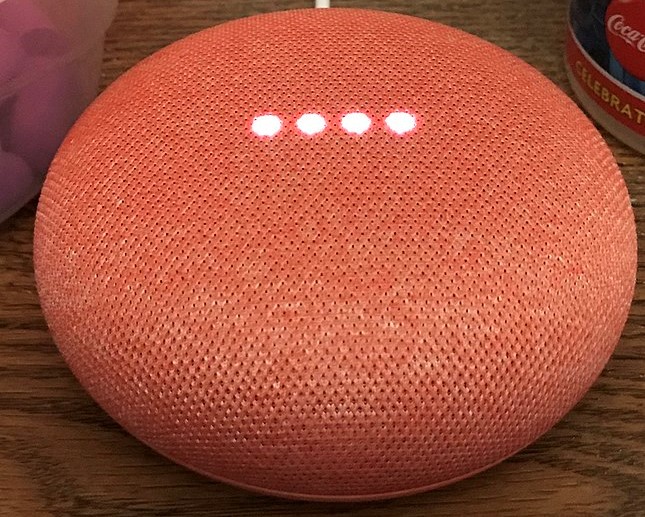Tech and Personal Life Merge
Beware when purchasing technical assistants
Technology has evolved greatly over the course of humanity, dating back to the discoveries of fire and the wheel. Creation of machines such as the printing press allowed for the greater spreading of ideas, which led to the knowledge and technology we have today.
Communication helps us to understand, assist, and observe one another. Although new and emerging technologies such as intelligent personal assistants and improved cell phones can prove useful, there is controversy concerning them. Certain programs in systems such as personal assistants and cell phones can be seen as intrusive in the eyes of some owners. Can a compromise be found, or will these innovative creations have to be scrapped?
As personal assistants such as the Amazon Echo and the Google Mini help with finding information quickly and efficiently, they are also known to record certain data on people within their homes. This data can be provided to the police and other government systems. This provision of personal information can be regarded as intrusive, as well as an invasion of privacy. Siri’s voice-activation commands, for example, could be turned on accidentally, which would let an unintended audience hear information not meant for them.
Some claim that their Fourth Amendment rights, which provide protection from unlawful or unwarranted searches, are being taken away. In other words, the data recorded by personal assistants like Alexa and the Google Mini could be seized in an unlawful search. To paraphrase, the Fourth Amendment lacks any power over information voluntarily given to a third party, or an outside person or group. According to Haley Sweetland Edwards’ May 4, 2017 TIME magazine article “Alexa Takes the Stand: Listening Devices Raise Privacy Issues,” Supreme Court Justice Sonia Sotomayor herself wrote that the third-party doctrine may be “ill suited to the digital age,” which could prompt it to be changed.
A possible solution to this problem of privacy could be a disclosure. For example, if a personal assistant is purchased, a disclosure could be given notifying the consumer of the information the electronic device collects and how it could be used. If this disclosure contract is signed, any evidence for a possible crime recorded on Alexa or a similar device may be given to the authorities. With this, the owner is held under complete responsibility.
A second solution would be to add some kind of blocker or signal indicator to these devices, which would halt unwanted information from being given. Or, better notification of the mute feature which keeps it from listening in. With the increase in easy use of technology, problems also increase, and solutions cannot always be found. If you hope to purchase one of these innovative creations, remember to beware these dangers. Not all that you say behind closed doors may stay that way.

Yani is a member of the class of 2021 and joined the Green Wave Gazette in his freshman year. He is an aspiring author who hopes to use his articles for...


